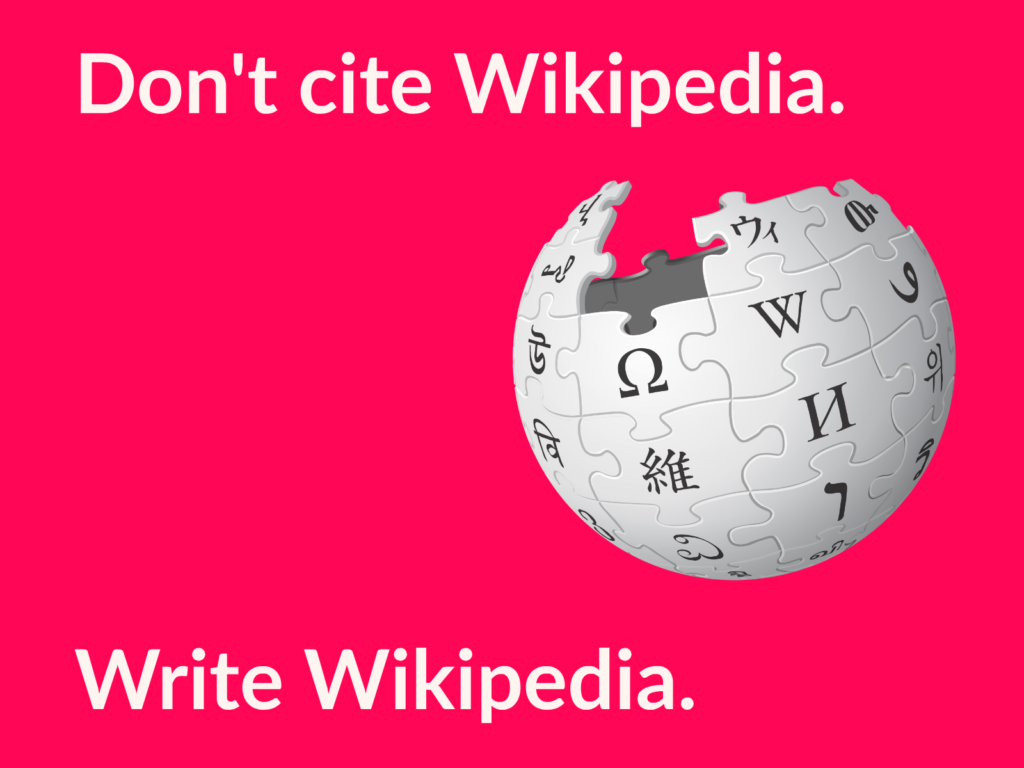The internet’s favourite website
for information
- English Wikipedia has 5.5m articles
- 500 million visitors per month / 17 billion pageviews per month
- 87.5% of students report using Wikipedia for their academic work
- Used by 90% of medical students and 50-75% of physicians
- It is the place people turn to orientate themselves on a topic
- More reliable than you think
- Used in schools & universities to teach information literacy & help combat fake news
- Guidelines around use of reliable sources, conflict of interest, verifiability, and neutral point of view
- Articles ‘looked after’ (monitored and maintained) by editors from 2000+ WikiProjects.
- Includes a quality and ratings scale

- Wikipedia does not want you to cite it. It considers itself a tertiary resource; an online encyclopedia built from articles which in turn are based on reliable, published, secondary sources.
- Wikipedia is relentlessly transparent. Everything on Wikipedia can be checked, challenged and corrected. Cite the sources Wikipedia uses, not Wikipedia itself.
Wikipedia does need more subject specialists to engage with it to improve its coverage, however. More eyes on a page helps address omissions and improves the content.
More reading
- British people trust Wikipedia more than the BBC, Guardian, Telegraph and Times.
- Your Middle School Teacher was wrong about Wikipedia
- People love Wikipedia: the internet’s favourite website.
- Wikipedia comes of age – The Chronicle of Higher Education
- Students’ use of Wikipedia as an academic resource — Patterns of use and perceptions of usefulness
- Updating Wikipedia should be part of all doctor’s job.
- See the page on Bermuda Triangle to see why reference librarians recommend Wikipedia for pre-researching a topic.